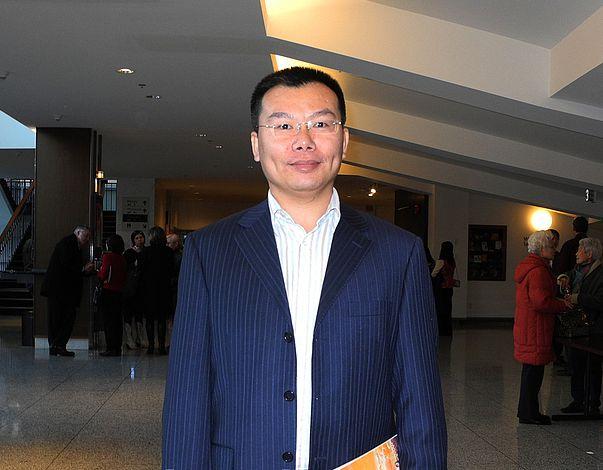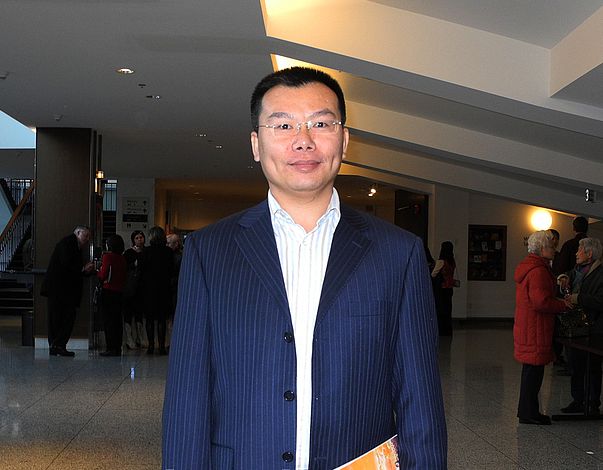VANCOUVER, Canada—Much like the characters in some of the legendary tales played out in the Shen Yun Performing Arts production, audience member Qiu Mingwei has faced a harrowing journey of his own in China.
As a former deputy director at China’s state-controlled newspaper, the People’s Daily, Mr. Qiu fled the country in 2009 to avoid persecution. His crime? Participating in a pro-democracy march in Hong Kong and advocating for human rights in China.
He attended the Saturday evening performance of Shen Yun at Queen Elizabeth Theatre and was filled with pride as he watched the rebirth of traditional Chinese culture being depicted onstage.
“Shen Yun is great,” he said through a translator.
“The show passes on divinely inspired Chinese culture.”
Mr. Qiu has faced constant surveillance, pressure, and harassment from Chinese communist authorities since he fled the country.
He showed obvious pride for the work done by the Shen Yun artists to fulfill their mission of reviving traditional Chinese culture and to speak openly about suppression in China through the performing arts.
“Watching the show, I can see that the Shen Yun dancers have undergone arduous training. They really embody the [Chinese proverb] ‘One minute onstage, 10 years of practice.’ Their dances can only be deemed a success,” he said.
Traditional Chinese culture and art forms have been virtually destroyed under the Chinese Communist Party’s various violent campaigns in past decades, such as the Cultural Revolution.







